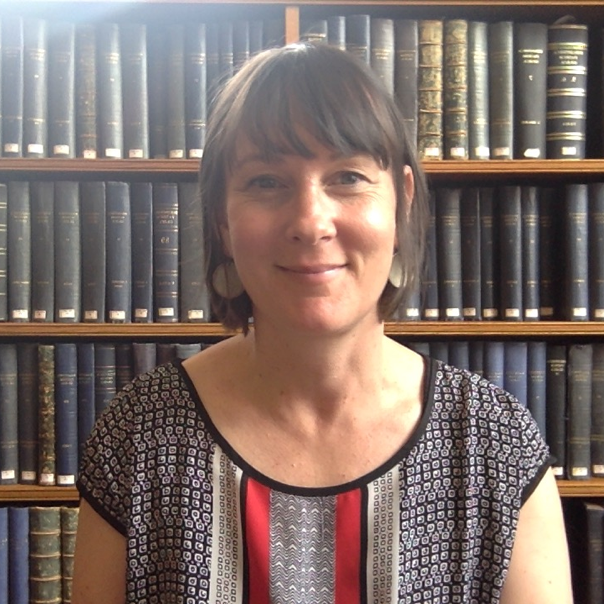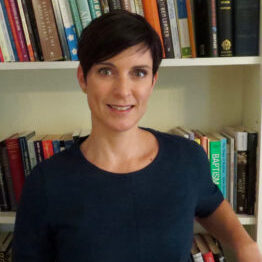Episode Transcript
[00:00:05] Speaker A: You're listening to by the well, a.
[00:00:06] Speaker B: Lectionary based podcast for preachers recorded on.
[00:00:09] Speaker A: The land of the Wurundjeri people.
By the tender mercy of our God, the dawn from on high will break upon us to give light to those who sit in darkness and in the shadow of death to guide our feet into the way of peace.
I'm Robyn Whittaker.
[00:00:33] Speaker B: Hi, I'm Dorothy Lee.
[00:00:35] Speaker A: And this is Advent Week 2. And today Dorothy and I are going to be discussing Malachi, chapter three, verses one to four. And then instead of a psalm, the lectionary gives us Luke, chapter one, verses 68 to 79, and Luke, chapter three, verses one to six.
So we should begin with Malachi.
[00:00:57] Speaker B: Actually, I was going to ask you, Robyn, what the context is. You're better on Hebrew scriptures than I am.
[00:01:03] Speaker A: Ooh, bit rusty. But look, Malachi is one of what's often called the 12 minor prophets. They're not minor, they're just shorter. But 12 prophets that we get towards the end of the Older Testament. And Malachi is probably not actually a real person's name in the way that Jeremiah or Amos is. It's a Hebrew. Malach is a messenger or an angel. So Malachi in Hebrew is my messenger. So that gives us a little bit of a sense and goes very well with today's reading, which starts with, I'm about to send my messenger, my Malachi.
It's written after the exile. So the setting here is probably around the time when the temple has been rebuilt. People are living in Jerusalem again.
But it's not all going very well. And we have some very familiar prophetic, prophetic themes of there's poverty, there's injustice, there's corruption amongst the temple priests, and so on.
And the style of Malachi is the text is framed as a series of disputes where God sort of says to the people, you're doing these things wrong. And then they kind of argue back. So it's an interesting sort of style. But the bit that's pertinent for us leading into today's passage is at the end of chapter two, God is sort of almost quoting them, saying back to you, where is the God of justice? So the people have posed this question to God, where is the God of justice? And our passage is the answer to that. This is what I'm about to do.
[00:02:43] Speaker B: Wonderful question, isn't it?
[00:02:45] Speaker A: Yeah, yeah, it is. And it's an ancient question and one I think we can resonate with still today when we look at what's going on in the World and corruption, despair and say, where is the God of justice? Y so what do you notice about these few verses we get? What struck you?
[00:03:04] Speaker B: Well, I think, you know, we saw in Advent 1 that there's a danger of immediately leaping into Jesus and it's important that we don't immediately leap here into John the Baptist, although John the Baptist is very important in Advent 2 and actually to a certain extent Advent 3 as well. So it's important we see it in the sort of context that you've outlined. So it's in a post exilic setting, the temple's been rebuilt, there's problems. So, and I think here what is, what we have is a very positive message of God appearing in the temple. God's messenger who is coming. And it's a coming that's got a sort of strong message of judgment, but it's a purifying judgment. It's not a sort of retributive, we got you back. It's not a sort of vengeance, it's a purifying judgment. It's things that we will actually enable us to offer true worship in the temple. So I think that wonderfully positive message and the fact that God's judgment does exist. I know some of us are a bit embarrassed by the whole idea of God's judgment and want to perhaps because it's been overemphasized in some church contexts and still is by some people in the church. But I think to see God's judgment as essentially purifying, it's actually there to enable us to offer true worship to God. And so again, it's a very positive message. Even God's judgment, the day of God's coming, who will stand?
Well, we're all going to be, you know, God's going to sort of look at all of us, look at all the nations, look at all our structures and say, yeah, there are problems, there are serious problems. They are dehumanizing, they are damaging, they're abusive, they show a lack of justice. But I will come in and I will purify, even if it might be a little painful.
[00:05:06] Speaker A: Yeah, and this language, I mean, there's two images of purification, one at least of which we will get in the gospel. So this is really important background for what Luke's doing in the way he tells the Jesus story. There's the refiner's fire. So again, this idea of fire, of something that purifies. And the image here is of metal. So you know, you shall, you know, one of the things purified in verse three is the sons of Levi. So this is a hint to us. Levi. That's the priestly line.
[00:05:36] Speaker B: Yes.
[00:05:37] Speaker A: So the priests need some refining. They're not being good priests, but they will become like golden silver. That's a. That's a beautiful image. Right. So the positive, I think, in there is that God can take something really corrupt in this sense. If we read about what the priests are doing and refine it to be something beautiful, it reminds me a little.
[00:06:00] Speaker B: Bit of the kind of image of the alchemist who, you know, in sort of medieval Europe, you know, the alchemist. The hope was that the alchemist would take base metals and turn them into gold.
[00:06:12] Speaker A: Yeah.
[00:06:12] Speaker B: And that's what you've almost got, an image of God as the alchemist who can take the base metals that we are and that many of our leaders are, and yet. And turn them into gold. It's a wonderful image.
[00:06:23] Speaker A: Yeah. And the second image is like it. This. So the Robert Alter translator has like the launderers lie L Y E. The NRSV has like the fuller's soap. Neither's probably very helpful. Helpful. I had to look up what a fuller was, Dorothy. I don't know if you knew that intimately. Oh, good.
But fullers are an ancient profession that cleaned the raw materials for cloth, so wool, linen, silk, et cetera. And they would wash them and dry them and bleach them and dye them. And so a fuller's field would be this space where they would lie out the cloths to dry and be bake in the sun and then processed again.
So the soap or the lye is the. Is the thing that cleans. So again, an image of taking something a bit rough, a bit unprepared, and turning it into something usable and beautiful.
[00:07:17] Speaker B: Something beautiful, yes. Isn't it?
[00:07:19] Speaker A: So there's some rich imagery to play with.
And just being careful, I am avoiding the language of using the language of turning it into something pure when we talk about metals, because purity has a whole very problematic imagery, both in terms of sexuality and in terms of race. So, yes, avoid pure.
[00:07:39] Speaker B: Yeah. I think it's probably better to avoid that language. It's not helpful.
[00:07:43] Speaker A: Yep. But this. Yeah, this idea. And I mean, the passage goes on and the lectionary really only gives us a tiny bit. But the end of Malachi talks about a faithful remnant who will welcome the day of the Lord. So this. This day of the Lord, when Jesus, you know, in the New Testament, it will be Jesus comes, but God comes. God visits the people. Is something that the faithful people welcome.
[00:08:08] Speaker B: Yes. Exactly. It's something wonderful. It's something, you know, that we want to stand up for, as we saw last week.
[00:08:16] Speaker A: So I think Luke is going to use a bunch of these images in the way he talks about preparations for Jesus coming. So let's flip over to Luke, chapter one, verse 68 is the start of Zechariah's prophetic utterance.
So this has a long tradition, particularly in your church, Dorothy, Anglicans, what do you do with the.
[00:08:45] Speaker B: Well, the tradition in Anglicanism was that every morning you would say this canticle, the Benedictus, which just means the song of Zechariah.
Well, Benedictus means blessed, because it's the first word of the canticle. And traditionally in the Anglican Church, it was said every morning and still is, I think, in.
In some circles, because the Australian prayer book has made everything shorter. We don't necessarily do it, but I think it's a beautiful prayer to say every morning and every night you would say the Magnificat in the evening, and then at night you would say the Song of Simeon.
[00:09:23] Speaker A: Oh, yes.
[00:09:25] Speaker B: So that was the kind of pattern.
[00:09:26] Speaker A: Yeah. So these. I mean, and these first chapters of Luke, and we have recorded a special episode introducing Luke, the Gospel of Luke for the year of Luke. So if you haven't found that yet, it is on a podcast.
But these first few chapters of Luke have a number of these canticles, or prophetic songs, and they are thick with theology. In some ways, they act almost as a theological summary, I think, of the gospel. Brendan Byrne, who's a colleague and friend of ours, who's written a great little book called the Hospitality of God Readings of Luke, he calls this particular canticle the best summary of the theology of the gospel.
[00:10:07] Speaker B: Yes.
[00:10:08] Speaker A: Now, I might argue with him about the Magnificat, but I'm happy to quote him regardless.
[00:10:13] Speaker B: Yes, I think it's a wonderful statement that sums up, of course, it comes to focus on John the Baptist in the. In the second part, but.
And I'm a bit sad that it loses. You know, you've been talking about metaphors. We lose the metaphor of the horn in verse 69, he's raised up a mighty savior. It's a horn of salvation.
And we lose that. We lose the sense of a horn being trumpeted, being blown in a victory horn is also, on an animal is a sign of strength, of power. You know that from Revelation, of course.
[00:10:54] Speaker A: Yep. Where all strange creatures have lots of horns on their heads.
No, I've got the David Bentley Heart translation here, and I You know, if you're going to preach on this and read the entirety of it in church, it might be worth looking for another translation because there's a few places where the NRSV has, I think, really flattened the text. So David Bentley Hart does have that.
Where is it?
He also keeps the language of visitation with that which I like. So he has. Blessed be the Lord God of Israel, which reflects the phrasing of the Greek, because he has visited his people. And the word there in Greek is where we get. Is Episcopal, is where we get that he's visited his people and brought their liberation. So we get that liberation, which is one of the options for what the anaras fee has, is redeemed. But redeemed has a sense of something purchased. Whereas liberation, to me is a bit more exciting. I don't know.
[00:11:50] Speaker B: It's a much more exciting and I think more relevant notion these days.
[00:11:53] Speaker A: Yeah. And then. And raised a horn of salvation for us in the house of David, his servant. So I think that's just a much better translation. I don't always agree with David Bentley Hart, but in this case.
[00:12:05] Speaker B: But it is a good one. It's a beautiful translation. And that notion of visitation is so central to Luke, isn't it?
[00:12:12] Speaker A: Yeah. Say a bit more about what does that mean? Because I think it captures some of the judgment we were talking about before as well as liberation.
[00:12:20] Speaker B: Well, I think the NRSV has tried to capture it by saying, looked favourably on, but if you blinked, you'd miss it. You know, it's just. Whereas the visitation of God. God has visited God has become a guest in order to bring us salvation, to bring us wholeness, to bring us liberation.
That notion of God actually visiting us in Jesus through, of course, and of course, in relation to John the Baptist, it's just a very rich understanding of the incarnation, I think.
[00:12:51] Speaker A: I agree. Yeah. Last week we talked about the movement of God towards us in these passages that talk about the Son of Man coming back and of which of us, of course, what the incarnation is. So the sense of visiting God, coming to spend time with God's people and God's creation, which, you know, as the prophetic texts tell us, and we do get it here in Luke, we're going to get there in a minute with John the Baptist. The visitation of God's people brings comfort, liberation and judgment and that's a tension we have to hold together.
[00:13:23] Speaker B: Absolutely.
[00:13:24] Speaker A: I think we can often. People often have a sense of Luke's Gospel because we have angels and shepherds and a Lot of concern for the poor and a lot of practical social justice teaching. It can seem like it's just a lovely sort of liberal people gospel. But there is this strong note of hard judgment.
[00:13:42] Speaker B: It is, actually.
[00:13:43] Speaker A: Yeah.
[00:13:44] Speaker B: Especially when he says things like, blessed are you poor and woe to you who are rich. You know, that's quite challenging.
[00:13:49] Speaker A: That's quite strong. Exactly.
One last thing on visitation, and this is again my gripe with the NRSV here. The same word appears down in verse 78. So it's twice in this passage which Bentley Hart again has translated. Through our God's inmost mercy, whereby a dawning from on high will visit us.
[00:14:10] Speaker B: Yes.
[00:14:11] Speaker A: So this image of light, that God brings light or dawning of a new day, a new era, but it will visit us. Same language, as opposed to break upon us, which, again, I don't know.
[00:14:20] Speaker B: Yeah, it's beautiful, actually. It's a beautiful translation. I think there's also a sense of the faithfulness of God to God's covenant, the covenant language that God has.
Even though we forget the covenant. Even though we have forgotten the covenant again and again, yet God does not forget. God's memory is living and active and. And so Jesus is the result of God's memory. You know, it's God's memory of God never forgets the covenant and never forgets to be faithful. So there's a profound sense of the faithfulness of God here, I think.
[00:14:57] Speaker A: Yeah. And it's littered all through that language of promises to our ancestors, remembering the holy covenant, the using of the name of Abraham. So just this constant reference to what God has done. And what God has done is. Is kind of the grounding or the evidence for why we can trust God. We'll keep doing.
[00:15:17] Speaker B: You know, and I think the reference to the ancestors is a really important one. I mean, you know, if you talk to indigenous people, I've found that I've learned so much more about ancestors because they have such a much more vivid sense of ancestors. I don't think we do. I think we're very individualistic. We don't think about our ancestors in faith, our ancestors in our. Our family, and yet. And how much we've gained from them. And. And it's this idea of the faithfulness of God rolling down the generations, you know, that. I think indigenous people actually have a sense of that.
[00:15:55] Speaker A: Yeah, I think that's right. And other cultures too. But, yeah, we live in these very individualistic. Don't think back. I mean, we don't even have a strong sense of Sometimes our own time or place in time that's broader than the last couple of decades or something.
[00:16:12] Speaker B: Yeah, absolutely.
[00:16:14] Speaker A: The other thing we get repeated through here is this language. I'm always struck by verse 77, that one of the things, this child. So John the Baptist. So the context here is Zechariah. This is the first thing he kind of utters after being rendered silent when he first didn't believe his wife was going to have a child. So there's lots of very fascinating gender speech thing going on in early Luke as well, where the women speak prophetically. Zechariah is silenced because of his disbelief.
[00:16:45] Speaker B: Yes.
[00:16:46] Speaker A: Which for a man in the ancient world is also a certain kind of emasculating. So we're getting the reversals. Luke talks about really early on in this Gospel with the priest who we would expect to speak, being silenced.
[00:16:59] Speaker B: Yes.
[00:16:59] Speaker A: At least for a time. And the women who we might not expect to speak. Speaking. Yes. And now he does speak as well, but he talks about what this child of his, John, will do, who's called a prophet, and it's to give knowledge of salvation by the forgiveness of the sins. And again, this language of release. The letting go of their sins.
[00:17:20] Speaker B: Yes, the letting go, yes.
[00:17:22] Speaker A: So Luke, you know, looking way ahead doesn't put a strong focus on the death of Jesus as, you know, some sacrificial atonement. That's not his theology. But there is a sense that Jesus.
Jesus comes to liberate people.
[00:17:40] Speaker B: I think there is a sense in the cross that it does bring about forgiveness.
I mean, perhaps the whole Jesus event, not just the cross for Luke.
[00:17:49] Speaker A: Yeah. I think in the resurrection and ascension, Jesus can then grant forgiveness. Like he. Absolutely. Yep. But, yeah, so that theme is. Is here.
And of course, this ends with this language of peace. So peace is the last word.
[00:18:04] Speaker B: Yes.
[00:18:04] Speaker A: Both in the English translation. And Greek. And Greek. And of course, the second Sunday of Advent is, if you have the tradition of lighting candles or using those Advent themes, is peace.
[00:18:15] Speaker B: It's the peace one. Yes.
[00:18:16] Speaker A: So you could do a whole meditation of what it means to live in the current world with so much strife and conflict. Not just actual real horrific wars going on, but also conflict in our own communities. You know, you hear stories of families who can no longer talk about politics because they're so deeply divided, or, you know, what would it look like to be people whose feet walk in peace.
[00:18:39] Speaker B: Yes. And what does it mean for us to pray for that God will guide our footsteps into the paths of peace. Yes.
[00:18:47] Speaker A: Yep. Anything else on this before we turn to.
[00:18:50] Speaker B: I love the way that verse 79 talks about shining. Those who. Shining on those who sit in darkness in the shadow of death, those who are dispirited, those who are discouraged, those who have death looming over them, either literally or metaphorically, that this is where this liberation, this peace, this beautiful reconciling peace, it's a peace of. It's a reconciling peace. And also in Luke, it's always a peace with justice.
And it comes particularly to those who are living in a land of gloom, who are living in darkness, who are living with despair and hopelessness.
[00:19:31] Speaker A: Did you know you could join our.
[00:19:33] Speaker B: Facebook group by the well for extra content and discussion.
[00:19:41] Speaker A: So the lectionary gives us chapter three, verses one to six as our actual sort of gospel reading for the day in that traditional spot, which of course takes us forward about 30 years. We've just leapt a whole lot of time.
Sometimes I do wonder about the lectionary, but. But that's a conversation for another day.
And where we meet John, who we've heard about as a baby but now appearing. And the word of God comes to John, we're told. Classic prophetic kind of image, that the word of God comes to him and he's out in the desert and he's baptizing people, which is simply a word that means washing. Really? Yes.
What's our context here, Dorothy? Give us a little bit of what else is going on.
[00:20:33] Speaker B: Well, Luke is very much a historian. He's not a modern historian, not at all, but he's an ancient historian. And so he's very intent to. I mean, the opening verses might seem a bit boring, but they're really important for Luke. He sets it within the context. He begins with the Roman emperor Tiberius, and then he has Pontius Pilate, the Roman governor of Judea, and then Herod the Jewish and inverted commas, ruler of Galilee.
Not, of course, Herod the Great, but Herod Antipas, his son, and various other people. And then he comes down to the elite, the Jerusalem elite, with Annas and Caiaphas both being high priests, which is itself weird because there's only ever one high priest, but there's two here because the Romans have taken over appointing high priests. And then finally, in that worldwide, in that cosmic context, the word of God zooms in. So it's like we're seeing one of those maps of the world or of the cosmos that you can see on Facebook. And it zooms down and down and down, down and down until it pinpoints John the Baptist and that's where the word, the word of God comes to him. And that's where the whole story of Jesus ministry will commence. And of course, it locates John as in the tradition of Isaiah, the prophet. And here, of course, it's second Isaiah from Isaiah 40. And it locates John within that context of the great prophets of Israel.
[00:22:10] Speaker A: Yeah. So there's a lot we could unpack here. A lot. So much. We'll try and be brief.
I think the first thing I always say to students when I teach these bits of the Gospels, with John coming, baptizing, is it's a baptism for the forgiveness of sins, which is a good reminder that Judaism already had mechanisms for forgiving sins.
[00:22:33] Speaker B: Yes, indeed.
[00:22:33] Speaker A: Right. This isn't something that entered world history with Jesus, but rather that there were lots of ways sins were forgiven and this was one of them. So he's calling people to repentance. So that is a bit of a theme in the readings today, but also that the letting go or the release of sins is possible. And in this case, it's kind of a Jewish purification ceremony, a washing ceremony that people were coming out to.
[00:22:58] Speaker B: I think it's important, too, to say that for Luke, as I think for the other Synoptic evangelists, repentance isn't remorse. Oh, I feel so dreadful about the things I've done. It's a turning around. It's a whole new. And. And if you continue reading, Luke becomes quite specific about what repentance actually means in terms of practical, everyday living, that it has a radical effect, a transforming effect on the way we live. So it's not just a feeling sorry for what we've done in the past as a church, as a nation, as individuals, but how our lives can be transformed, Father, and need to be transformed, formed by that.
[00:23:40] Speaker A: Yes. There's. I've been dipping in and out of Fleming Rutledge's Advent book. So she's an Episcopal priest and theologian, and she talks about this passage and about repentance and says, I don't need to tell you how hard this is for us. She's talking about repentance. We don't like admitting we need radical surgery. The New Testament Greek word for this is metanoia, repentance. It doesn't mean just being sorry. And I would add to that feeling shame or something, right?
[00:24:11] Speaker B: Yes.
[00:24:11] Speaker A: It means a change of life. It means a reorientation towards a different goal, the kingdom of God. And she goes on to talk about repentance is for the strong. Right. Yes. If you're Weak. You kind of admit you're too busy guarding things, but repentance is actually an act of strength.
[00:24:29] Speaker B: Yes, absolutely.
[00:24:29] Speaker A: She talks about. Which is. Yeah, really interesting. So that's a good book for preachers who might want some other things to think with.
[00:24:36] Speaker B: That's great. That's lovely, the way it's put. And I love the way that Luke has added the words all flesh shall see the salvation of God at the end of that quote, which the other gospels, the other two don't have. And it really brings. I mean, I love the way it's all flesh.
[00:24:53] Speaker A: Yes.
[00:24:54] Speaker B: It's not just all human beings, it's all flesh.
[00:24:57] Speaker A: Yeah.
[00:24:58] Speaker B: And it's this wonderful message of a salvation that's cosmic, that's universal, that is for everyone. Whether everybody takes it up or not is another question. But it's available for everyone. And it's not just for the insiders. It's as much, if not more, for the outsiders, in Luke's understanding.
[00:25:21] Speaker A: Yes. And Luke will.
There's many, many ways Luke does that. Radical inclusion of. All right. The universalizing of salvation. You know, his genealogy of Jesus famously goes all the way back to Adam.
[00:25:35] Speaker B: Yes.
[00:25:35] Speaker A: Right. Not just to the Jewish ancestors, but all the way back to the first man we saw last week, where in the sort of apocalyptic part in chapter 21, it's all nations. Like this is something that involves the world.
[00:25:49] Speaker B: Yes.
[00:25:50] Speaker A: And his. Yeah.
[00:25:51] Speaker B: And once again, it's. It gets us away from that Focus exclusive focus on spirituality Now, I think the spirituality is absolutely essential, but it's not the only thing. This is about the transformation, the liberation of all human reality and of all created reality.
[00:26:08] Speaker A: Yeah. And the Isaiah passage which, you know, pops up all over the. Isaiah is. I think there's a famous book called the Fifth Gospel, because Isaiah is used so much in the Gospels.
And here, of course, as you said, John's being put in this prophetic tradition. He's saying the words of Isaiah here. And we have an image of things being flattened, straightened, evened out to be more accessible. So kind of like a. An. I don't know, an opening up or a, you know, making it easier for.
[00:26:41] Speaker B: People to make the journey from exile to.
[00:26:44] Speaker A: Yeah.
[00:26:45] Speaker B: Yes. Richard Trelaw, who's a bishop in our church, once described Isaiah. I don't know if it was unique to him as the great prophet of Advent. And I thought that was. It's a bit like the fifth gospel.
[00:26:57] Speaker A: Yes. No, it's. It's a. Yeah, but it's.
[00:27:00] Speaker B: It's a lovely. I mean, it sounds Awful. At first you think, oh, don't lower the hills. They're beautiful. But if you're actually an old person and you're on a long journey, you don't want to be going up and down hills. You want a nice straight path. Thanks for that.
[00:27:12] Speaker A: Is good. Or if you're riding a bike, like it was this week, flat. Is good.
[00:27:16] Speaker B: Is good.
[00:27:17] Speaker A: The hills near my house, not so good, even though they are beautiful to look at.
I mean, just to finish up, in terms of preaching themes, there's so much here, and there is both promise and challenge.
I'm going to quote Fleming Rutledge again and then give you the last word, Dorothy. But she talks about this, you know, so we're in Advent, the season of expectation, of preparation, of being alert to what God's doing. And she writes, preparing the way for the coming of the Lord Jesus is not going to be so easy for you and me. It means laying ourselves open to God's great levelling operation. It means relinquishing our most cherished strategies and defenses. It means living every day in anticipation of God's work of cutting and filling. So she's talking about the hills and the valleys. It means being ready at all times to relinquish one's own special privileges in a world on behalf of those who might be very different from oneself.
[00:28:25] Speaker B: That's wonderful.
[00:28:26] Speaker A: Yeah. Strong words, though. Challenging words.
[00:28:29] Speaker B: Very challenging words. But I like the way that she uses the idea of levelling as an image for society, too.
[00:28:35] Speaker A: Yes.
[00:28:36] Speaker B: You know, because we do have our privileges, and we, as a Western culture, feel ourselves to be very privileged in relation to other cultures. And so this actually cuts or gets rid of all of that. It undercuts it all.
[00:28:50] Speaker A: Yep.
[00:28:51] Speaker B: And there's a levelling here that's. That affects all of us. It affects patriarchy. It affects all sorts of dimensions of our life, of our inner lives and our lives together. And so I think that would make itself. Would make a wonderful sermon.
[00:29:07] Speaker A: And that's good news, particularly if you aren't one of the privileged and the.
[00:29:11] Speaker B: Powerful, and they're the ones that Luke's concerned about.
[00:29:14] Speaker A: Yeah. Yeah.
By the well is brought to you by Pilgrim Theological College and the Uniting Church in Australia. It's produced by Adrian Jackson. Thanks for listening.





